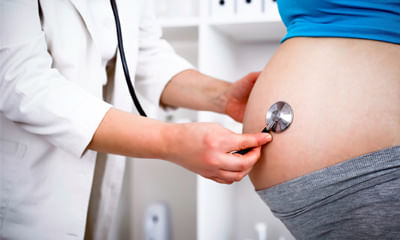Cervical Mucus During Early Pregnancy
HI, After 2 days of period we had sex and now she is discharging, so wanted to know. ...
Ask Free Question
Here is the Simple & Clear Solution For You… Please read each Line of the below article with patience… Your Chances of Getting Pregnant, at Every Point in Your Cycle… Timing is everything when it comes to baby-making! To hit the baby-making bulls-eye, you've got to aim for certain sweet spots of fertility in your cycle. Here's how to maximize your odds of conceiving throughout the month. Phase 1: Your period: In essence, menstruation is the monthly shedding of the endometrium, the inner membrane of the uterus. For most women, this lasts between three and seven days. By the third day, levels of progesterone and estrogen are on the rise and working on rebuilding your endometrium. Around day four, follicle ripening begins to go on the uptick. That means the ovaries are starting to prepare eggs for release. Unless you're a very early ovulator (the average timing for ovulation is 14 days before the start of your period -- track yours by using a basal body temperature chart or an ovulation predictor kit), there's little chance your man's sperm will actually have any eggs to work with during this phase of your cycle. Your odds of conceiving: Almost nil. It's not detrimental to have intercourse, and some women see it as a good time to take a breather from the rigors of frequent baby-making sex. Phase 2: Pre-ovulation: "I recommend having sex frequently -- two to three times a week, but every other day if you can -- shortly after you stop menstruating to cover your window of pre-ovulation, says Kelly Pagidas, M.D. A fertility specialist with Women & Infants Center for Reproduction and Infertility in Providence. Here's why: Around day seven of your cycle, you'll notice vaginal discharge that seems a little springy to the touch. Within a few days, it will turn white and creamy, a cue that your fertility is returning once again. It doesn't mean the egg is released yet, but it's a good indicator that ovulation is on the way and that your cervical mucus is a friendly environment for sperm. Remember, sperm can live up to five days if it's trapped in fertile cervical mucus, so it behooves you to get a few of his swimmers in place. "One study showed that people who had sex only one time during this phase, even four to five days before ovulation, still got pregnant, says Steven R. Bayer, M.D. Reproductive endocrinologist at Boston IVF fertility clinic in Boston. Your odds of conceiving: Good. An egg isn't technically released during this phase but you'll want to step up your sexual routine in the event that you ovulate earlier than planned. “Over 137,000 Women Got Pregnant Using this Pregnancy Miracle!” Phase 3: Ovulation: Welcome to prime time for conception! No matter how long your periods are, ovulation generally starts about 14 days before your next scheduled period. When it happens, your body temperature rises about a half a degree. But bear in mind that this takes place after you're already ovulating, which could be too late. "That's where ovulation kits becomes so helpful, Dr. Bayer explains. "Once it turns positive, have sex in the next 24 to 36 hours. Another good indication of fertility is a change in the consistency your cervical mucus. "You'll see vaginal discharge that increases in amount and has the consistency of egg whites, signaling it's the perfect time to have intercourse, Dr. Bayer says. Test yours by sticking your index finger and thumb in your vagina to get a sample, then tapping your finger and thumb together. If the consistency is thin and spreads easily between two fingers, you're good to go. Your odds of conceiving: High, if you have sex within 36 hours. Any eggs that are released live no longer than 12 hours. In fact, it's best if his swimmers meet your egg within four to six hours of its release. Data show that having every-other-day sex is just as effective as doing it every day, so no need to go crazy getting busy every hour (unless you really want to!). Phase 4: Post-ovulation: Also known as the luteal phase, this final portion of your cycle lasts a minimum of 12 days and as many as 16. Progesterone starts to rise, signaling that the ovaries don't need to release any more eggs this month. Your cervical mucus will dry up and create a plug to prevent any additional sperm from entering the uterus. It takes about six days for any fertilized eggs to travel to your uterus. If one implants in your endometrium, you'll start to see the rise in human chronic gonadotropin (hCG), the hormone measured by home pregnancy tests, within a week. Your odds of conceiving: Low. Once the egg has been released, there's not much that can be done until next month. But there's certainly no harm in having sex if you're in the mood! I Hope You like it… ALL THE BEST.
Hi Sir, Less stretchy and tacky white cervical mucus before a day of my expected period. I checked hcg test and it was n ...
Ask Free Question
If the test is negative then chances are less. But it can be false negative if done early. So better repeat if the period is delayed more than a week.
I have milky white cervical mucus on 10 th day of my cycle. If I have sex now can I get pregnant? ...
Ask Free Question
Some chance yes. Remember- Pregnancy can occur only one day of cycle that is ovulation day so unprotected sex around that day only important. As only one day in month nature should be given 12-24 trials (12 to 24 months) before couple need any active management by Gynecologist or infertility specialist In your case early because of age. Any couple desirous of pregnancy and not getting same naturally must meet Gynecologist or infertility specialist accepting facts that it needs many reports and different trials of treatment. Means couple must have patience and go to one in whom they have trust to stick for long time.
I am a unmarried girl .mujhe period khtm hone ke 2 ya 3 days ke baad hi white discharge hone lgta hai. Or ye pure 7 days ...
Ask Free Question
Vaginal discharge is most often a normal and regular occurrence. However, there are certain types of discharge that can indicate an infection. Abnormal discharge may be yellow or green, chunky in consistency, or have a foul odor. Abnormal discharge is usually caused by yeast or bacterial infection. If you notice any discharge that looks unusual or is foul smelling. Types of Vaginal Discharge There are several different types of vaginal discharge. These types are categorized based on their color and consistency. Some types of discharge are normal, but others may indicate an underlying condition that requires treatment. White A bit of white discharge, especially at the beginning or end of your menstrual cycle, is normal. However, if the discharge is accompanied by itching and has a thick, cottage cheese-like consistency or appearance, itâs not normal and needs treatment. This type of discharge may be a sign of a yeast infection. Clear and Watery A clear and watery discharge is perfectly normal and can occur at any time of the month. It may be especially heavy after exercise. Clear and Stretchy When discharge is clear but stretchy and mucous-like, rather than watery, it indicates that you are likely ovulating. This is a normal type of discharge. Brown or Bloody Brown or bloody discharge is usually normal, especially when it occurs during or right after your menstrual cycle. A late discharge at the end of your period can look brown instead of red. You may also experience a small amount of bloody discharge in between periods, which is called spotting. If spotting occurs during the normal time of your period and you have recently had sex without protection, this could be a sign of pregnancy. Spotting during an early phase of pregnancy can be a sign of miscarriage, In rare cases, brown or bloody discharge can be a sign of advanced cervical cancer. This is why itâs important to get a yearly pelvic exam and Pap smear test. Yellow or Green A yellow or green discharge, especially when itâs thick, chunky, or accompanied by a bad smell, is not normal. This type of discharge may be a sign of the infection trichomoniasis, which is commonly spread through sexual intercourse. Causes of Vaginal Discharge Normal vaginal discharge is a healthy bodily function, and itâs your bodyâs way of cleaning and protecting the vagina. Itâs normal for discharge to increase with exercise, sexual arousal, ovulation, birth control pill use, and emotional stress. Abnormal vaginal discharge, however, is usually caused by an infection. Bacterial Vaginosis Bacterial vaginosis is a bacterial infection and is quite common. This infection causes increased vaginal discharge that has a strong, foul, and sometimes fishy odor, although it produces no symptoms in some cases. Women who receive oral sex or who have multiple sexual partners have an increased risk of acquiring this infection. Trichomoniasis This is another type of infection, but a protozoan (a single-celled organism) causes it. The infection is usually spread by sexual contact, but it can also be contracted by sharing towels or bathing suits. This infection results in a yellow or green discharge that has a foul odor. Pain, inflammation, and itching are also common symptoms, although some people donât experience any symptoms. Yeast Infection A yeast infection is a fungal infection that produces white, cottage cheese-like discharge in addition to burning and itching sensations. The presence of yeast in the vagina is normal, but its growth can multiply out of control in certain situations. The following may increase your likelihood of yeast infections: stress diabetes birth control pill use pregnancy antibiotics (especially prolonged use over 10 days) Gonorrhea and Chlamydia Gonorrhea and chlamydia are sexually transmitted infections can produce an abnormal discharge, which is often yellow, greenish, or cloudy. Pelvic Inflammatory Disease Pelvic inflammitory disease is an infection that is often spread by sexual contact. It occurs when bacteria spreads up the vagina and into other reproductive organs. It may produce a heavy, foul-smelling discharge.
Hello mam Am 22 years old and 5 months pregnant second time. I have a baby girl first aged 15 months. In my second pregn ...
Ask Free Question
Watery discharge during pregnancy can be due to many different reasons. You will have to know the underlying cause to determine if what's coming out of your vagina is normal or not. 1. Leukorrhea. Leucorrhea, the surge in the levels of estrogen, may increase the blood flow towards your vagina, which may cause vaginal discharge during the early stages of pregnancy. The discharge is usually thin and white in color. 2. Urine. Leaking urine is quite normal during pregnancy, especially when you sneeze, cough or have a good belly laugh. The smell and color will also confirm the discharge is urine. 3. Mucus Plug Your cervix will become thin and dilate during pregnancy, which may lead to the expulsion of the mucus plug. The plug fills the cervical canal and is made of mucus. It prevents any passage of bacteria to your baby. The plug comes off in the later stages of pregnancy, usually when you're ready to give birth. 4. Amniotic Fluid Your discharge may be the amniotic fluid that comprises of dead skin cells, cervical and vaginal secretions, and vaginal bacteria. If you notice sudden gush of fluids after the end of your third trimester, this could be the amniotic fluid discharge. 5. Preterm Labor If you're witnessing a brownish- or red-colored watery discharge before you complete 37 weeks, it could be a sign of preterm labor. Go see your doctor immediately for proper diagnosis. 6. Yeast Infection If you experience symptoms such as vaginal itchiness, swollen vulva, burning sensation and greening-yellow discharge, this may indicate a yeast infection. You have to consult your doctor because it is not easy to control a yeast infection during pregnancy and it could be quite uncomfortable, too. 7. Bacterial Vaginosis You may develop bacterial vaginosis due to an imbalance in the vaginal bacteria. The most common symptoms are yellowish or grayish-white watery discharge with a strong "fishy" smell. It is important to treat it on time or else it may lead to preterm delivery, miscarriage, or post pregnancy uterine infection. 8. Sexually Transmitted Disease If you're experiencing watery discharge that changes color from white to gray, yellow or green, this could be due to a vaginal infection or sexually transmitted disease. SO YOU HAVE CONSULT YOUR GP FOR YOUR PROBLEM.
My wife is 6 week pregnant And I can't control to do sex. But I do intercourse in side by side sleeping and doing slowly ...
Ask Free Question
Most parents-to-be worry about this, but if you have a normal pregnancy, you can keep doing it right up until your waters break. There are lots of psychological and physical benefits of sex so pregnancy is not a reason to stop. And you may find that being free from worries about conception and contraception, you feel sexier than ever. Some researchers even think that women who have regular sex during pregnancy may be less likely to give birth prematurely. Having orgasms may also be related to a lower chance of giving birth early. If you're feeling sexy and well enough, then it's a good thing to keep your sex life going throughout pregnancy. Having satisfying sex during this time is good for your relationship and your sense of wellbeing, both now and after your baby has arrived. Fear of hurting your baby can be one of the most common reasons to avoid sex during pregnancy. You won't hurt your baby by making love, even with your partner on top. The thick mucus plug that seals your cervix helps guard against infection. The amniotic sac and the strong muscles of your womb (uterus) also protect your baby. If you orgasm, you may notice your baby moves around more. However, this is because of your pounding heart, not because he knows what's happening or feels discomfort. Your midwife or GP may advise you not to have sex if you have experienced: bleeding abdominal pains or cramps broken waters a history of cervical weakness a low-lying placenta (placenta praevia), particularly if you have had some bleeding.
My wife is pregnant I think its 5-6 week Then I have to know In pregnancy can I do foreplay and then intercourse (but sp ...
Ask Free Question
As such, sex in pregnancy is not forbidden medically. Yes. If she had a healthy pregnancy, thereâs no reason why you and your partner canât have sex. The thick mucus plug that seals your cervix helps to guard your baby against infection. The amniotic sac and the strong muscles of your uterus (womb) also keep your baby safe. Your penis wonât damage your baby in any way while you're having sex. You may find your baby moves around a bit after you've had an orgasm. It's nothing to worry about. Your baby's reacting to the pounding of your heart. He doesn't know what's happening or feel any discomfort. You may have heard that having sex can bring on labour before your baby is ready to be born. This is not true, as long as you have had a straightforward pregnancy. If your wife's body is not ready to go into labour, having sex will not cause her to have a premature birth. In fact, it seems that if you have regular sex during pregnancy she may be less likely to give birth prematurely! There are, however, some circumstances where you may have to be careful about having sex. If she had any bleeding or spotting in early pregnancy, her doctor may advise her not to have sex until you reach 14 weeks. Herr doctor may say it's best not to have sex for the rest of her pregnancy if she has: a history of cervical weakness a low-lying placenta (placenta praevia) had heavy bleeding had a vaginal infection For most women and their partners, sex during pregnancy is fine as long as both partners consent and are comfortable. However, certain problems can occur during pregnancy that put the fetus at risk for premature delivery. If you are experiencing vaginal bleeding, preterm labor or ruptured membranes, you should not have sexual intercourse and you should avoid having orgasms. Your health care provider will tell you if sex could be harmful, but do not hesitate to ask if you have questions or concerns. Partners need to be honest and realistic about sex during pregnancy. Open communication may help to defuse frustration. Because AIDS/HIV infection is transmitted through sexual activity, always practice safe sex. HIV infections can be transmitted to the unborn child. Get both the partners checked for HIV (and other STD as well) and may have sex withot condom and can also orgasm inside. (but you should not have multiple sex partners after HIV test or if you have multiple partners, do safe sex.) Suggestions for Making Love During Pregnancy Some hints for satisfying and comfortable sexuality during pregnancy include: Positioning Side lying, with partner behind woman Woman on hands and knees, partner kneeling behind Woman sitting on partner's lap Lubrication Water soluble lubricant jelly, such as Astroglide or KY Jelly. Do not use baby oil or Vaseline. Lubricated condom Alternatives Cuddling Full body massage Foreplay Benefits of Having Sex during Pregnancy:--- Making love during pregnancy boasts a number of big health benefits. Here's why a little extra alone-time with your hubby can do a body (and a baby!) good: Improves orgasms: Blood flow intensifies your sexual desire. In fact, some women achieve a real orgasm for the first time ever during pregnancy! Burns calories: Sex is the most fun way to stay fit â youâll burn 50 calories or more in 30 minutes of love-making. Lowers blood pressure: Sex has been found to lower blood pressureâ¦a good thing for both of you, since high blood pressure is linked to the pregnancy complication preeclampsia. Reduces pain: Orgasm releases oxytocin (or the âlove hormoneâ), which one study found to increase pain tolerance by 74%. Improves sleep: For moms: Sex is relaxing â so it helps you sleep better. For babies: The rocking motion of a sex session often lulls baby to sleep. Boosts immunity: A study found that sex boosts levels of IgA, an antibody that helps avoid colds and other infections. Boosts happiness: Orgasm releases endorphins â which make both you and baby happier and more relaxed. Increases intimacy: Thank oxytocin again â itâs been linked to romantic attachment. Speeds up postpartum recovery: Orgasms during pregnancy prepare the pelvic floor for childbirth, which in turn speeds postpartum recovery. Do Kegels during pregnancy sex to pump up those muscles â and increase pleasure for you both!
Im pregnant of 4 months my husband after using sandhya ayurvedic massage oil to pennis, we had intercourse is there any ...
Ask Free Question
In a normal pregnancy, having sex is not linked with early miscarriage and is not a cause of vaginal infections. You won't hurt your baby by making love, even with your husband on top. The thick mucus plug that seals your cervix helps guard against infection. The amniotic sac and the strong muscles of your uterus (womb) also protect your baby. However, your doctor may advise you not to have sex if you have experienced: • bleeding • abdominal pains or cramps • broken waters • a history of cervical weakness • a low-lying placenta (placenta praevia), particularly if you have had some bleeding. You may also be advised to avoid sex during pregnancy if your husband has genital herpes. If you catch genital herpes for the first time during pregnancy there's a small risk that it could affect your developing baby.








